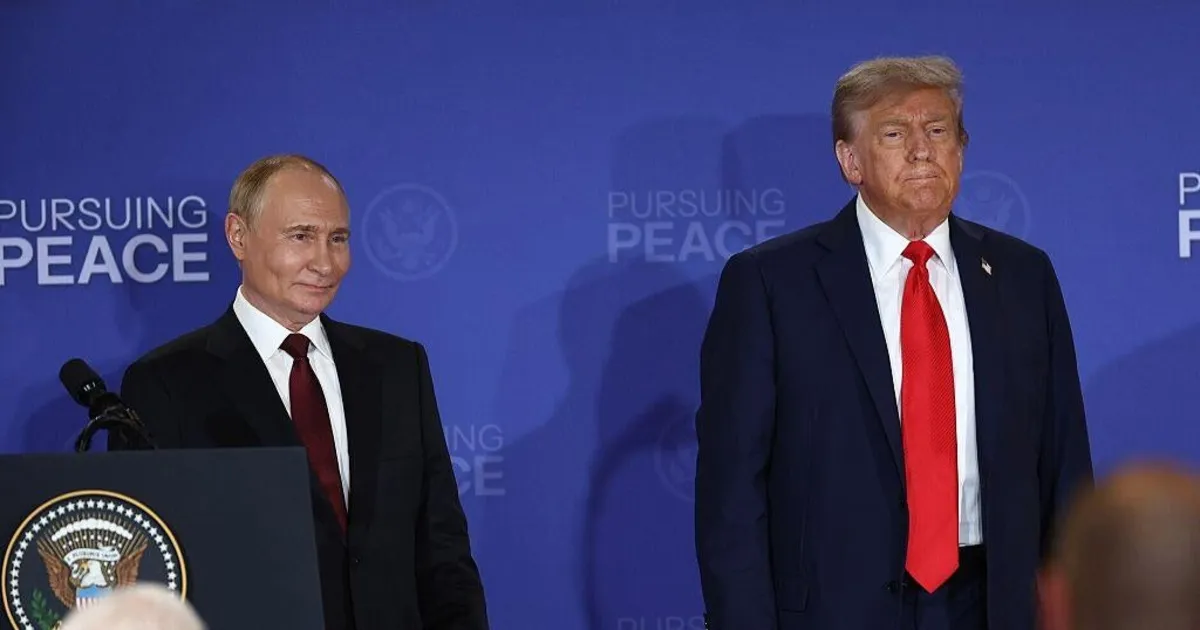
Washington — In a significant diplomatic development, Russian President Vladimir Putin has reportedly agreed during his summit with President Trump to permit the United States and its European allies to extend a security guarantee to Ukraine. This guarantee is reminiscent of NATO's collective defense mandate and aims to facilitate a resolution to the ongoing conflict in Ukraine, which has persisted for over three and a half years. This information was disclosed by Steve Witkoff, the special U.S. envoy, during an interview on CNN’s State of the Union.
Witkoff emphasized that this concession marks a pivotal moment, stating, “We were able to win the following concession: That the United States could offer Article 5-like protection, which is one of the real reasons why Ukraine wants to be in NATO.” He noted that this is the first time the Russian government has acknowledged such a possibility, describing it as a game-changing development.
At the core of NATO's framework, Article 5 stipulates that an armed attack on one or more member states will be regarded as an attack on all members of the alliance. This principle of collective defense has been a cornerstone of NATO's deterrence strategy. Witkoff's announcement suggests a potential shift in the Russian stance towards Ukraine’s aspirations for NATO membership, which has long been a point of contention.
During the discussions, which took place at a military base in Alaska, Witkoff, alongside Secretary of State Marco Rubio, mentioned that Russia had agreed to enact legislation ensuring it would not infringe upon the sovereignty of other European nations. This commitment could pave the way for enhanced stability in the region.
In response to these developments, European Commission President Ursula von der Leyen expressed her support during a press conference in Brussels alongside Ukrainian President Volodymyr Zelenskyy. She stated, “We welcome President Trump's willingness to contribute to Article 5-like security guarantees for Ukraine, and the 'Coalition of the willing' — including the European Union — is ready to do its share.”
Zelenskyy also acknowledged the positive signals from the United States regarding security guarantees but expressed concerns about the lack of clarity surrounding the details. He emphasized the importance of collaboration between the U.S. and Europe to establish effective security measures for Ukraine, akin to NATO’s Article 5. He remarked, “It is important that America agrees to work with Europe to provide security guarantees for Ukraine, but there are no details on how it will work.”
Witkoff defended Trump's decision to move away from insisting on an immediate ceasefire with Russia, which had been a key requirement prior to the summit. He explained that the president shifted focus towards achieving a peace deal due to the progress made in other areas of discussion. Witkoff noted, “We covered almost all the other issues necessary for a peace deal,” although he refrained from providing specific details.
Senator Marco Rubio, appearing on CBS’s Face the Nation, expressed skepticism regarding the effectiveness of imposing new sanctions on Russia as a means to compel Putin to accept a ceasefire, arguing that such actions could jeopardize ongoing negotiations. He stated, “If he did this now, the moment the president puts those additional sanctions, that's the end of the talks.”
Rubio emphasized the need for Ukraine to make compromises while also securing vital terms. He articulated the right of Ukraine, as a sovereign nation, to enter into security alliances to safeguard against future invasions. “That’s not an unreasonable request,” he concluded.
Following the summit, Zelenskyy and other European leaders are expected to meet with President Trump at the White House, indicating a continuation of discussions aimed at achieving a lasting peace agreement. Rubio remarked, “I’m not saying we’re on the verge of a peace deal, but I am saying that we saw movement, enough movement to justify a follow-up meeting.”